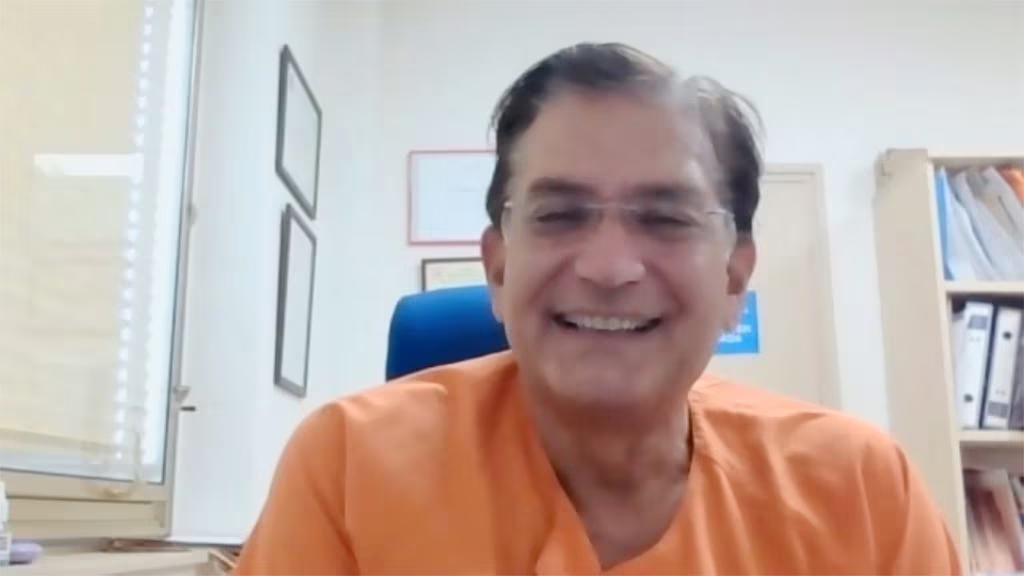Respiratory Disorders
An Introduction to Respiratory Disorders
Asthma is a chronic inflammatory disorder of the airwaves and one of the most common respiratory diseases. While the majority of cases can be controlled, severe asthma is associated with high risk of exacerbations and death. Severe asthma is categorised as T-helper type 2 (T2) high and T2 low. T2 high, also known as eosinophilic asthma, involves generation of cytokines including interleukin-4, −5 and −13. Recently, the management of severe eosinophilic asthma has been transformed by the development of monoclonal antibodies. Other allergic respiratory diseases include allergic rhinitis, which can be managed via symptomatic treatment with antihistamines, and allergy immunotherapy.
Browse video highlights and short articles from the conference hub, providing insights into the latest updates from major conferences and peer-reviewed articles from the journal portfolio. This is complemented by a range of educational activities from our expert faculty, with patient outcomes at the forefront.
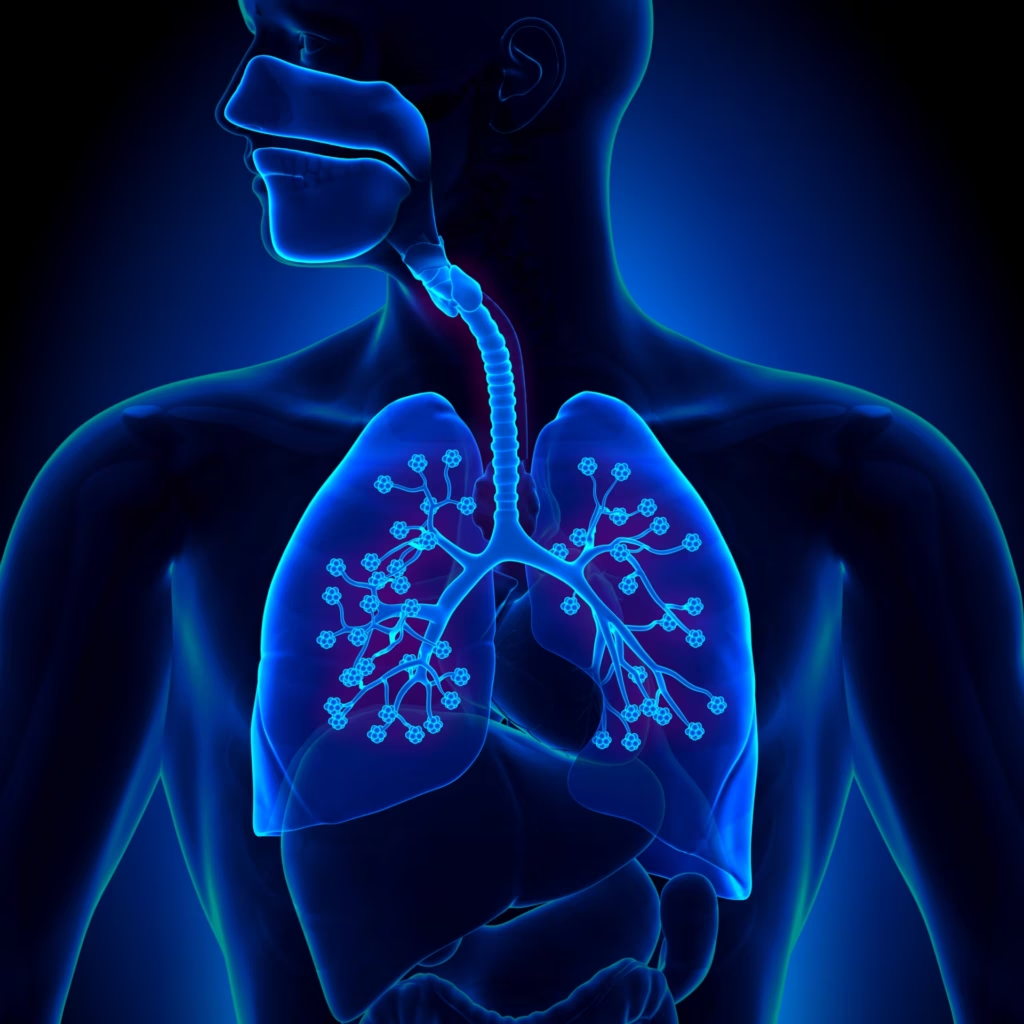
Interstitial lung disease (ILD) is a common and potentially fatal complication of systemic autoimmune rheumatic diseases (SARDs), such as rheumatoid arthritis (RA) and systemic sclerosis (SSc). ILD may be the first sign of disease or develop later, often with variable clinical courses. Early detection is critical, as delayed diagnosis contributes to poor outcomes. In response, the 2023 American College of Rheumatology (ACR) guidelines emphasize routine screening and risk-based strategies to improve identification and management of SARD-associated ILD (SARD-ILD).

Physician burnout is at a critical point. In this episode, Nicky speaks with Dr Alfred Atanda about why so many physicians are burning out and what can be done to change the trend. From personal experience to system-wide solutions, Dr Atanda shares valuable insights on improving physician well-being and building a more effective healthcare culture.

In this episode, we explore the future of continuing medical education (CME) with the team behind touchIME. Hannah Fisher and Matthew Goodwin share insights into global and US trends, the importance of patient inclusivity and how educational outcomes are evolving to better measure the direct impact of learning on clinical practice and patient care.
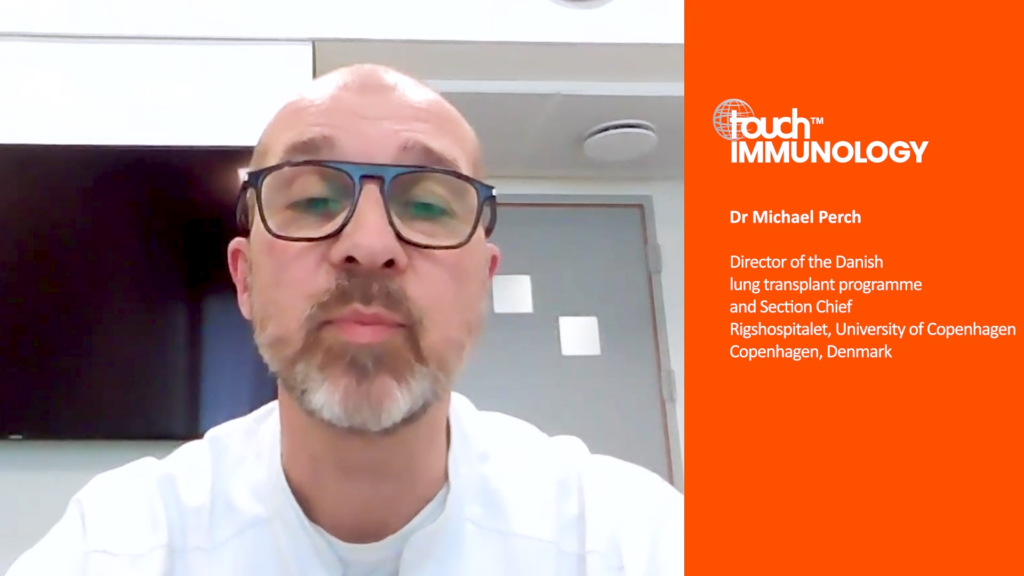
Three experts discuss the pathogenesis, diagnosis and treatment for bronchiolitis obliterans syndrome (BOS).




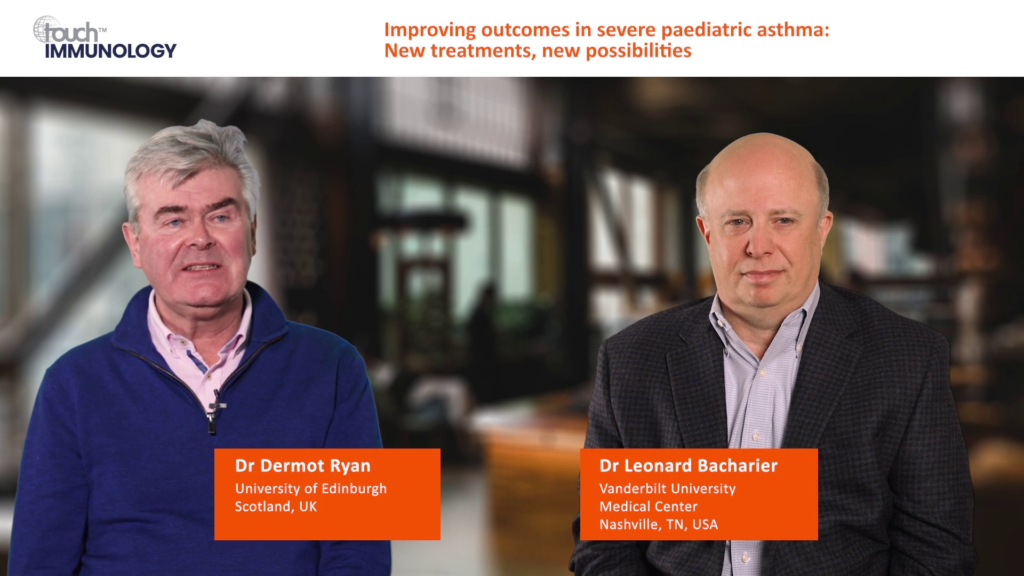
Watch an asthma expert and a primary care respiratory specialist discuss diagnosis, treatment and management of severe asthma in children.

Watch ENT specialists discuss key considerations in optimizing the management of patients with CRSwNP.






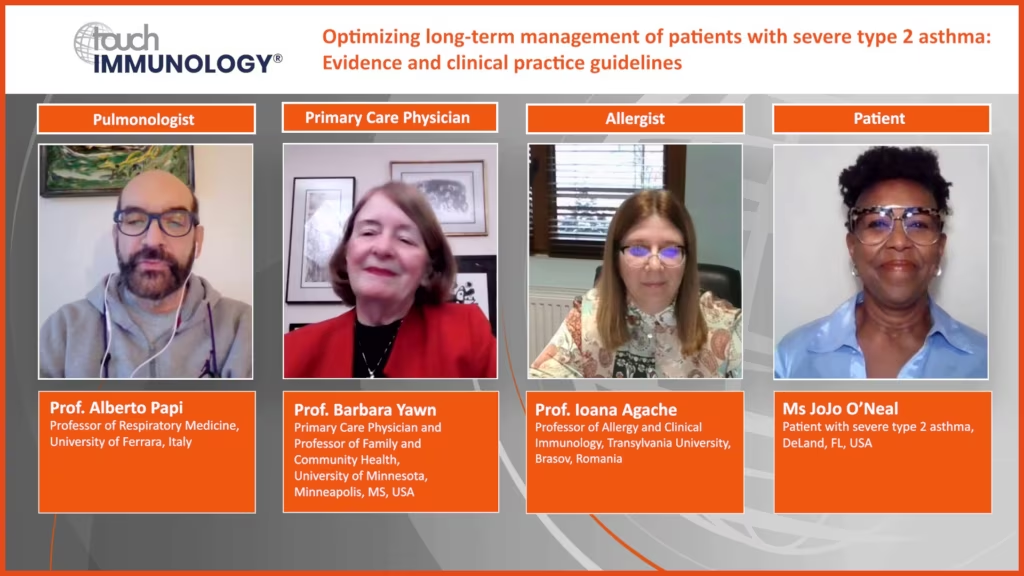
MDT specialists, plus a patient with severe asthma, discuss the disease burden and the role of biologics in the long-term management of severe T2 asthma






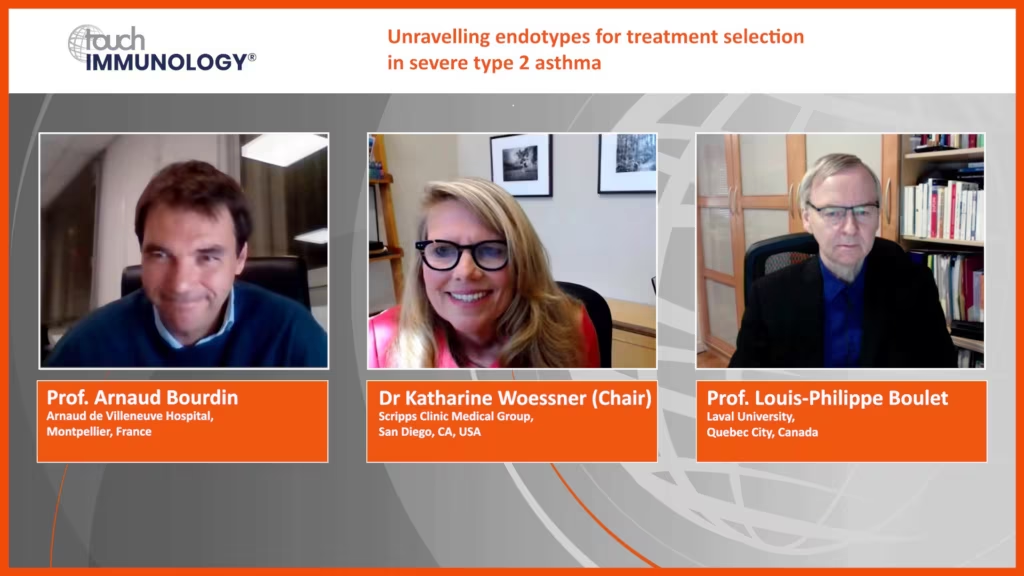
Experts discuss how endotyping and biomarkers can help to guide optimal treatment selection in patients severe type 2 asthma







Watch a panel of experts discuss challenges in the diagnosis of CRSwNP and considerations for optimal management of the disease.






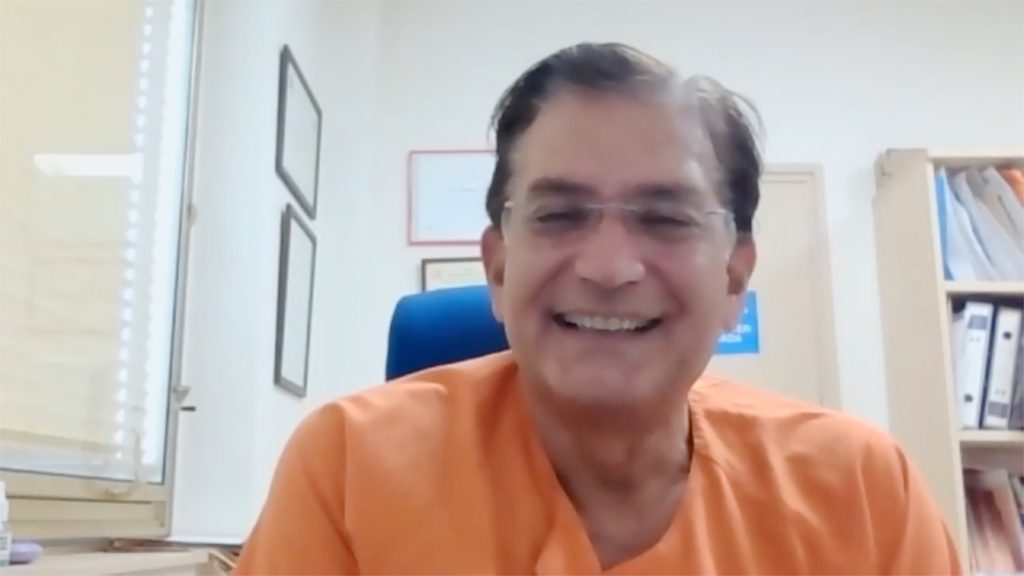
It was great to talk with Dr Luis Puente-Maestu (Hospital General Universitario Gregorio Marañón, Madrid, Spain) around the abstract 'Randomized, double-blind, placebo-controlled, phase III clinical trial with MV130, a sublingual bacterial immunotherapy to prevent COPD exacerbations.' (Presentation ID 207), ...
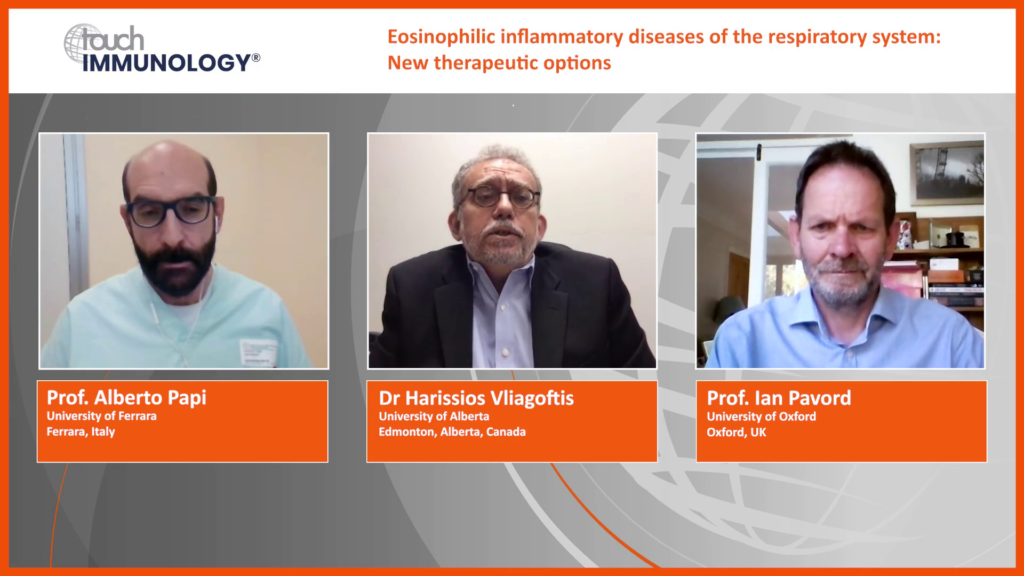
Watch a panel of experts discuss how to identify and manage patients with inflammatory respiratory diseases, with a focus on severe eosinophilic asthma.






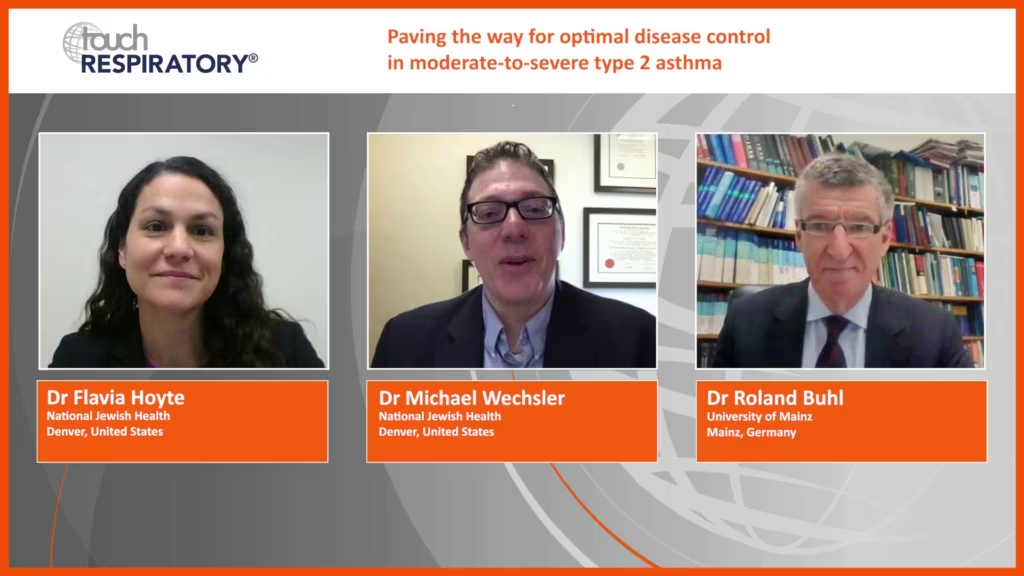
Watch a panel of experts discuss the diagnosis of type 2 asthma, the rationale for biological therapy and emerging treatments.






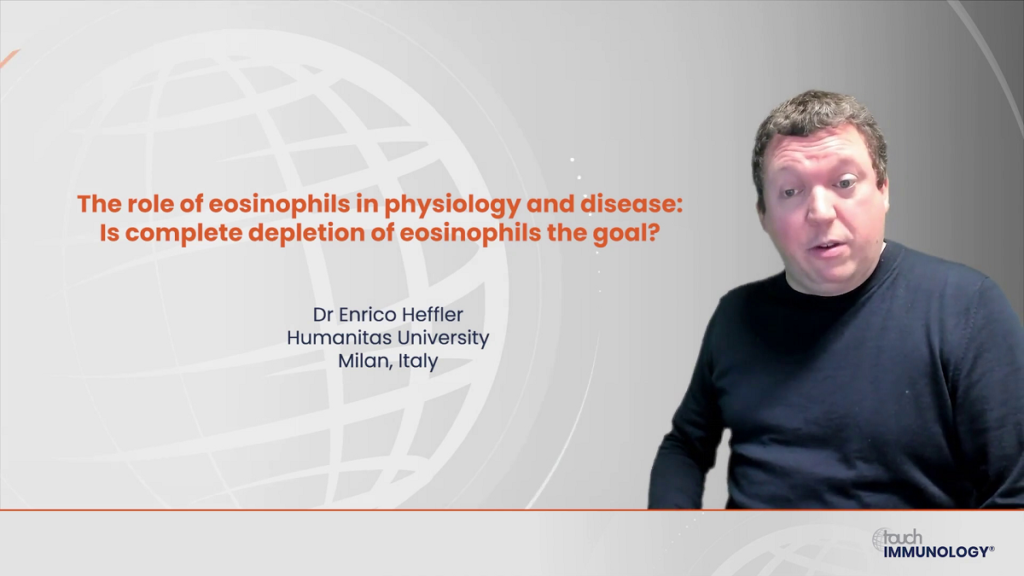
Watch Dr Enrico Heffler describe how eosinophilic inflammation can be targeted for the treatment of inflammatory respiratory diseases.







We spoke with Elliot Israel (Harvard Medical School, Boston, MA, USA) about the advances being made with biologics in the treatment of type 2 asthma. Questions How have biologic therapies transformed the management of severe asthma? (0:25) What have recent clinical trial ...
Latest articles videos and clinical updates - straight to your inbox
Log into your Touch Account
Earn and track your CME credits on the go, save articles for later, and follow the latest congress coverage.
Register now for FREE Access
Register for free to hear about the latest expert-led education, peer-reviewed articles, conference highlights, and innovative CME activities.
Sign up with an Email
Or use a Social Account.
This Functionality is for
Members Only
Explore the latest in medical education and stay current in your field. Create a free account to track your learning.




